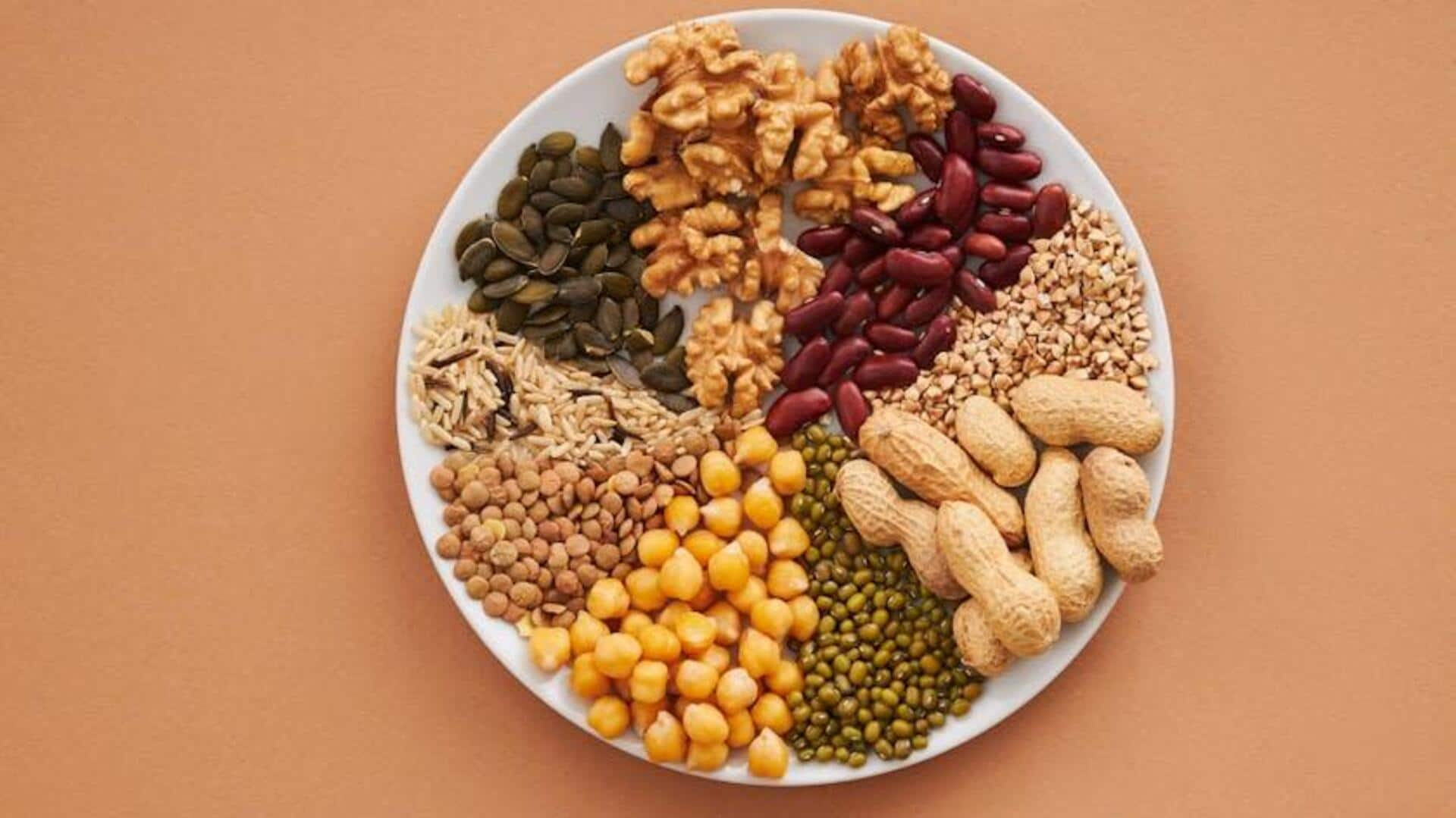
Ancient Indian legumes that are rich in protein
What's the story
As more people embrace veganism, ancient Indian legumes are being rediscovered as a sustainable source of protein. Grown for centuries, these legumes are the backbone of traditional diets, providing not just nutrition but also versatility in cooking. They address the rising need for plant-based nutrition, making them an ideal option for healthy and diverse meals.
Lentils
Lentils: A protein powerhouse
Lentils are one of the most popular ancient Indian legumes and are an excellent source of protein. They are made up of about 25% protein by weight and make for an excellent option for vegans who want to meet their daily protein requirements. Lentils are also loaded with fiber, iron and folate, making them a great addition to your diet. You can use them in soups, stews, salads, etc., for both nutrition and flavor.
Chickpeas
Chickpeas: Versatile nutrient source
Chickpeas have been a staple in Indian cuisine for thousands of years, owing to their nutritional profile. They provide around 19% protein along with essential vitamins like B6 and minerals like magnesium. Chickpeas can be eaten whole or ground into flour for baking. Their ability to blend well with different spices makes them perfect for making flavorful dishes like curries or hummus.
Mung beans
Mung beans: Digestive aid
Mung beans are small green legumes that pack a nutritional punch with about 24% protein content (when cooked). They are also easy on digestion compared to other beans or pulses, as they contain lower levels of oligosaccharides (that are responsible for gas production during digestion processes). They help maintain gut health effectively while providing necessary nutrients including potassium, which supports heart function too.
Black gram
Black gram: Heart-healthy choice
Another ancient legume that comes loaded with health benefits, alongside its impressive nutrient profile, is black gram, which is around 25% proteins per serving size. How is it particularly beneficial? It contains soluble fibers, aiding cholesterol reduction, thus promoting cardiovascular wellness naturally over time if consumed regularly within balanced diet plans involving other wholesome foods, too.